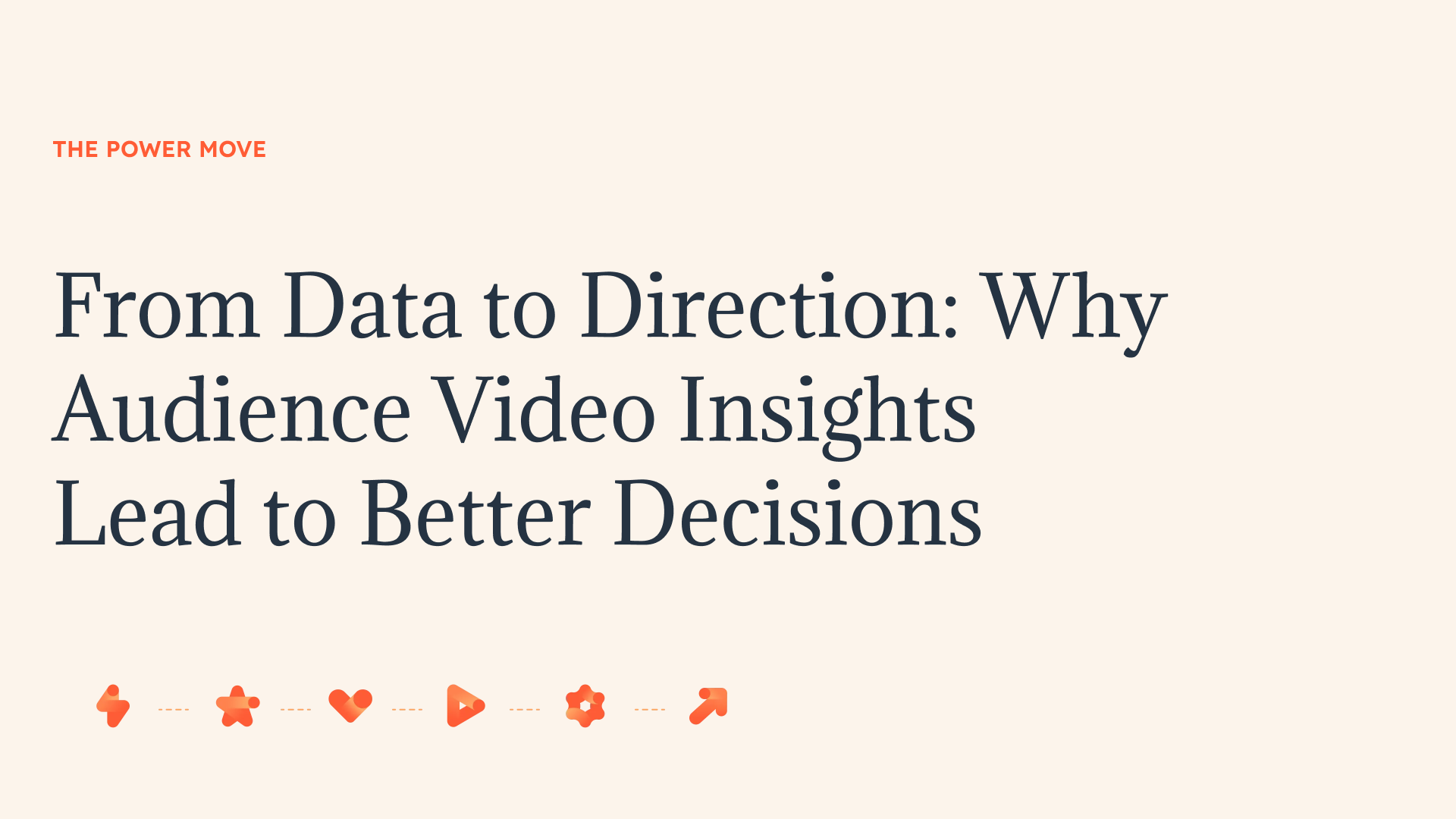Brands today have more data than ever—analytics dashboards, heat maps, survey responses, attribution reports, and performance metrics. But even with all of this information, something is still missing: the emotional “why” behind customer decisions. Numbers can show patterns, but they can’t reveal what a customer was thinking or feeling in the moment. And for teams building products, creative, and campaigns, that missing emotional context can lead to misinterpretation or misguided strategies.
As consumers communicate more naturally through video—on TikTok, Instagram, and everyday messaging apps—brands are realizing that written feedback doesn’t capture the full story. People express nuance through their expressions, tone, and reactions, not through multiple-choice answers. Video has become the medium that reveals the truth behind the data.
This is why modern insight teams are shifting to video-first feedback. It adds the human layer brands need to make confident decisions and transform raw metrics into meaningful direction.
Why Traditional Data Alone Isn’t Enough for Modern Decision-Making
Even with endless metrics at their fingertips, brands still struggle to fully understand their audiences. Traditional data provides scale but lacks emotional clarity. Dashboards tell you what happened—but never why it happened. And in a world where creative, product, and marketing decisions must be made faster than ever, teams need deeper context.
The Gap Between Data and Actual Understanding
Numbers don’t reveal motivations
Surveys often lack authenticity
Analytics only show what, not why
Brands need emotional nuance to make confident choices
Why Video Insights Fill This Understanding Gap
Real facial expressions that show genuine emotion
Tone of voice that reveals excitement, uncertainty, or hesitation
More honest, natural responses than text-based formats
A human layer added on top of quantitative data
How Audience Video Insights Turn Raw Data Into Actionable Direction
Video insights transform static metrics into living, emotional narratives that teams can interpret quickly. Instead of reading through long reports, stakeholders can watch real humans react to a concept, design, or product—giving them clarity in minutes. This qualitative depth accelerates decision-making and reduces uncertainty across departments.
Video-enhanced insights result in:
Insights backed by real user emotions
Faster interpretation of consumer reactions
Greater confidence in creative or product decisions
Clearer understanding of audience sentiment shifts
Practical Applications: Where Video Insights Strengthen Strategy
Whether refining product strategy or choosing the next creative direction, video insights support smarter decision-making. They help teams understand how people actually respond, which pain points matter most, and which ideas resonate emotionally.
Where brands use video insights most effectively:
Testing creative ideas before launch
Understanding first impressions of new features or products
Analyzing emotional reactions to UGC or ads
Identifying unmet needs or pain points
Prioritizing product roadmap decisions
Turning Video Insights Into Cross-Team Alignment
Clip reels for leadership and stakeholders
Sentiment tagging to track emotional patterns
Identifying behavioral trends that guide strategy
Faster consensus across marketing, product, and research
The Future of Insight-Driven Teams: Video-First Decision Cultures
Teams that integrate video into their decision-making process gain a competitive advantage. They understand their audience at a deeper level, move faster with more confidence, and make smarter bets based on emotional truth—not assumptions.
Why video-first teams win:
Better creative accuracy
More confident experiment cycles
Stronger audience connection
Lower risk in decision-making
Faster validation of ideas
FAQ
1. Why are audience video insights more actionable than traditional data?
Audience video insights provide emotional context that numbers and text can’t show. They capture tone, hesitation, enthusiasm, and authentic reactions, giving teams more accurate interpretations of how customers feel. This helps brands avoid misreading quantitative data or making assumptions. With video, decisions are grounded in human truth, not just metrics. The combination of emotional clarity and visual evidence makes video insights far more actionable.
2. How do brands analyze video-based feedback efficiently?
Modern tools use AI to transcribe, tag, and categorize video responses automatically. Teams can filter insights by sentiment, topic, or emotion, making it easy to find patterns without watching every second manually. They often create highlight reels to present findings quickly across departments. This workflow speeds up analysis and makes sharing insights seamless. As a result, video-based feedback becomes just as efficient as traditional surveys—only significantly richer.
3. What types of decisions benefit most from video insights?
Video insights benefit decisions where emotion, first impressions, or authenticity matter. This includes evaluating creative concepts, testing messaging, refining product features, prioritizing roadmaps, and understanding customer pain points. Anytime a brand needs clarity on why people respond a certain way, video is superior to text. It helps remove ambiguity and supports precision in decision-making.
4. Can video insights complement existing quantitative data?
Absolutely. Video does not replace quantitative data—it enhances it. Metrics identify patterns, while video explains the emotional reasoning behind them. When used together, teams gain a complete picture: the scale of the issue and the human story behind it. This combination leads to more accurate insights, better strategies, and more aligned decision-making.
5. How scalable is video feedback for larger research initiatives?
Video feedback is highly scalable thanks to modern recording and analysis tools. Participants can record via link or QR code without needing an app, allowing brands to collect hundreds or thousands of responses quickly. AI transcription, tagging, and summarization make large datasets manageable. This makes video a viable method even for enterprise-scale research efforts. With the right workflow, it becomes as scalable as any other data-gathering method—only far more insightful.




